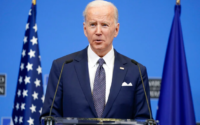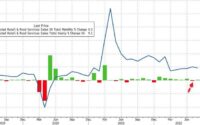Argentina’s World Cup Glory Comes As Inflation Ravages Economy
Four weeks of football led to Sunday’s 2022 World Cup Final at Al-Lusail Stadium in Qatar, when Argentina defeated France to lift the 2022 Qatar World Cup trophy.
But, the nation’s recent soccer glory comes at a time when inflation is ravaging Argentina’s economy. With its economy mired in one of the worst downturns in Latin America, Argentina’s traditionally high rate of inflation rate tops 70%.
Argentina and France faced each other in the finals of the FIFA 2022 World Cup, pitting Lionel Messi against his Paris Saint-Germain teammate Kylian Mbappe.

Both Argentina and France sought a third title in Qatar. France’s 2018 win against Croatia gave them a chance to become the first team since Brazil in 1962 to keep the inaugural Argentina World Cup. Argentina won on their native soil in 1978, and in Mexico in 1986.
After winning Argentina’s first World Cup as hosts in 1998, France returned in 2006, only to be defeated on penalties by Italy (in a shootout that followed a Zinedine Zidane header over Marco Materazzi). Although France came into the 2022 World Cup Final as reigning champions, they failed to make an appearance in the first half against Argentina. The team that was trying to hold off Argentina was France.
Messi had given Argentina a lead in the first half from the penalty spot; a lead that was doubled with 10 minutes to go against a French defense that had proven difficult to penetrate throughout the tournament.
Argentina had several attempts at France’s net within the opening 15 minutes of play, failing to score.
It’s a cathartic moment for Argentina.

Argentina’s soccer team played for a nation mired in a decade-long stagflation cycle marked by budget deficits, sluggish growth, a high unemployment rate, and a soaring inflation rate. With capital fleeing from developing countries, Argentina has seen its bonds fall to historic lows, and its peso currency under increasing stress, while high bills for energy imports are stopping it from building vital dollar reserves.
Argentina now has the second highest inflation among large economies, after Turkey. Despite receiving one of the largest International Monetary Fund (IMF) bailout programs ever given to any country, poverty in Argentina has increased to 32%, up from 26% last year.
The COVID-19 pandemic had significant impacts on Argentina’s economy. Argentina is expected to recover in the coming years, with the IMF projecting a 2.5 percent GDP increase in 2022 and a two percent increase for 2023.
Argentina has experienced several economic recessions, including periods of high inflation and unemployment during the late 20th century, and a severe financial crisis at the beginning of the 21st century. In the mid-first decade of the 20th century, however, Argentina’s economy had recovered; it was experiencing considerable GDP growth, renewed foreign investment, and significant reductions in unemployment.
Despite its high standard of living relative to Latin American standards, Argentina had a ratio of foreign debt to the size of the least developed countries. Argentina now has a GDP per capita that is closer to other Latin American countries than to the developed-country group to which Argentina belonged one century ago.
Argentina nonetheless found escapism as Messi carried the entire nation on its back, helping them to forget their own inflation misery.
[ad_2]
Source link


